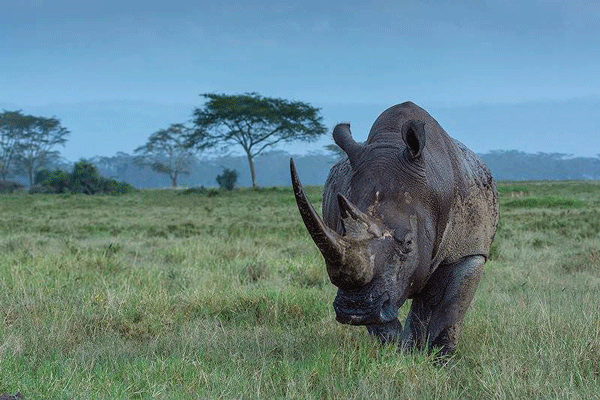
Fresh controversy has hit Zimbabwe’s recent secretive capture and export of white rhinos to the Democratic Republic of Congo following reports that one was shot and killed for violent behaviour in a quarantine facility at the Hwange National Park.
By Oscar Nkala
The 10 rhinos were captured in the Matopos, Lake Kyle and Lake Chivero national parks late in August and held in a quarantine boma at the Zimbabwe Parks and Wildlife Management Authority (Zimparks) Mtshibi Camp in Hwange.
The British-based Bring Back Our Rhinos group said one of the rhinos was shot in captivity late in September for aggressive behaviour after it attacked and injured a game ranger in a fit of rage.
Zimparks sources who spoke to The Standard in Hwange confirmed the attack saying the game ranger suffered a broken arm, upper torso as well as hand injuries that led to amputation of two fingers on one hand.
Bring Back Our Rhinos coordinator Sharon Hoole said Zimparks must come clean on the fate of the affected rhino and prove that the animals were donated to the DRC and not sold to China as widely reported.
“We know that the rhino, which attacked a game ranger was shot and killed inside the quarantine facility,” she said. “This means that the other rhinos witnessed, and were exported unhealed of the trauma of witnessing this killing. We want to know if this killing was legal, who sanctioned it and where the horns went.”
Hoole said the Convention on International Trade In Endangered Species of Fauna and Flora (Cites) should promote transparency in Zimbabwean live-animal exports by investigating the alleged rhino killing, and proving that the rhinos went to DR Congo and not China.
- Chamisa under fire over US$120K donation
- Mavhunga puts DeMbare into Chibuku quarterfinals
- Pension funds bet on Cabora Bassa oilfields
- Councils defy govt fire tender directive
Keep Reading
“Zimparks were secretive from the moment of capture, through the quarantine process to the eventual export of the rhinos,” she said.
“The public had a right to know, and a right to say if they agreed or not with this live animal sale.
“We need to know where they were sold to, for how much and why because no one besides Zimparks knows the trugh, we cannot believe the rhinos went to the DRC. We need to know who moved the rhinos from Hwange, and to which airport.
“Which airline flew them out, and where? Why so much secrecy and refusal to account for public assets?”
UK-based elephant and rhino conservation activist Nomusa Dube said Cites should stop certifying Zimbabwean wildlife exports in the absence of clear national consensus and guarantees of transparency and accountability for the returns.
She called on responsible governments and animals rights activists to pressure Zimbabwe to account for the 10 white rhinos and stop a new elephant capture programme targeting baby and sub-adult elephants at the Hwange National Park.
Game rangers said at least 20 elephants were already in the quarantine bomas at Mtshibi. The programme has a target of up to 120 elephants.
“The sub-adult animals will be relocated to restock other game parks within the country. We have only heard that the baby elephants are for export to zoos, but we don’t know where,” said a game ranger who spoke on condition of anonymity.
Zimparks spokesman Tinashe Farawo said to the best of his knowledge, Zimbabwe delivered all 10, and not nine white rhinos to the DRC.
However, he professed ignorance on new elephant captures and the killing of a rhino, which injured a game ranger. “It is true that we have delivered the rhinos to the DRC,” he said.
“I don’t know if a game ranger was attacked, or if the rhino responsible was shot afterwards.
“However, such incidents may happen because rhinos are very dangerous and aggressive animals.
“I am also not aware of new elephant captures, but we have a programme to relocate elephants from Hwange to other game parks to restock.
“I will check with the Hwange office and get back to you.”
In the past five years, Zimbabwe has made several controversial and secretive exports of live animals to China.
These include the delivery of baby elephants, lions, leopards, baboons, monkeys and several plain game animals to China.










